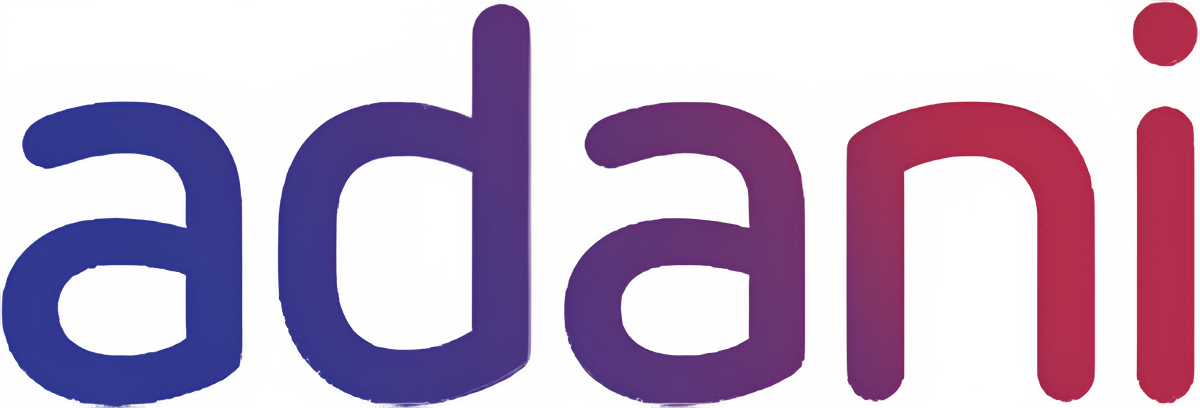Which Company Builds the Most Secure Fintech Apps in India?
In the fintech industry, security is essential to user confidence, legal compliance, and long-term company survival. For any financial product, selecting a partner who is knowledgeable about secure identity verification, encryption, payment rails, and post-launch resilience is essential. This article examines what distinguishes a leader in secure fintech engineering, how product strategy is impacted by regional decisions made throughout India, and why partnering with a specialized fintech app development company in India can reduce operational and regulatory risk while speeding up time-to-market.
What "most secure" actually means for fintech applications
People frequently consider a mix of engineering practices, compliance posture, and operational maturity when they inquire about which company creates the most secure fintech apps. Secure-by-design architecture, which includes threat modeling, least-privilege access, and robust cryptography, is the foundation of true security. Thorough testing, ongoing monitoring, and methodical incident response follow. Independent penetration tests, SOC 2 or comparable controls, and robust operational procedures for key rotation and secret management are all signs of these practices that a reputable fintech software development company in India will provide. Transparent user safeguards like unambiguous consent for data sharing, strong authentication, and simple fraud reporting procedures are also part of security. Instead of adding these safeguards as an afterthought, the top vendors incorporate them into the design of their products.
Engineering techniques that distinguish leaders from followers
Code reviews, static and dynamic analysis, dependency scanning, and threat modelling during design are all repeatable procedures that are fundamental to secure fintech engineering. A leading Indian mobile app development company views security as an integral aspect of the development process rather than an isolated stage. This includes automated tests that look for data leaks, secure CI/CD pipelines that validate builds, and runtime safeguards like rate-limiters and Web Application Firewalls (WAFs) to lessen abuse. Thorough transaction reconciliation, tamper-evident logs, and immutable audit trails are also essential for fintech products, where money moves and identities are important, to promptly and accurately resolve disputes and regulatory audits.
The influence of regulatory compliance on security
India's financial applications must comply with several frameworks, such as RBI payment guidelines, data protection standards, and industry-specific regulations for investment or lending products. When processing cards, a respectable software development company in India will adhere to PCI-DSS regulations, have documented procedures for managing sensitive financial data, and use secure transmission and storage methods for personally identifiable information. Compliance is more than just checking boxes; it influences vendor selection (which identity or KYC providers to integrate), incident reporting procedures, and architecture decisions (such as whether to store data in-region). Future regulations are taken into consideration when designing products by the most secure vendors, which makes upgrades less painful as regulations change.
The foundations of trust are identity, KYC, and fraud prevention
The foundation of fintech trust is identity verification and fraud prevention. Device signals, biometric or liveness checks, official ID validations, and behavioral analytics are all combined in layered verification pipelines that are implemented by top teams. By instrumenting the onboarding funnel and tracking drop-off vs. fraud rates, the best fintech app development company in India can assist in balancing user friction and risk reduction in a well-executed KYC flow. A human-in-the-loop workflow for high-risk decisions, velocity checks, and anomaly detection in transaction patterns is an additional component of effective fraud prevention. These characteristics lessen losses and safeguard the platform's reputation.
Best practices for cryptography and data protection
Encrypting user data everywhere is necessary, including data-at-rest using robust algorithms and appropriate key management, and data-in-transit using TLS. The top providers use hardware security modules and managed KMS solutions when necessary to keep developers from accessing decryption keys and to separate responsibilities. Exposure to possible breaches is decreased by tokenizing payment instruments and using ephemeral tokens for crucial operations. To reduce the impact of any data exposure while maintaining analytical utility, a reputable fintech software development company in India will also offer advice on anonymization and pseudonymization techniques.
Resilient design for operations that protect money
The underlying architecture needs to be robust in addition to code-level controls. Idempotent APIs, robust message queues, and transactional guarantees are necessary for financial workloads to prevent duplicate payments from retries. A leading mobile app development company in India uses strong consistency for money-moving operations while designing for eventual consistency where needed. Multi-region backups, encrypted backups, disaster recovery plans, and runbooks that specify precisely how to handle both frequent and uncommon incidents are additional safeguards. You can demonstrate recovery time objectives (RTOs) and recovery point objectives (RPOs) for a fintech app before you ever serve a customer. This is known as operational readiness.
Monitoring, observability, and incident response
If breaches are not detected, security is ineffective. Application traces, metrics, and structured logs that feed into a centralized security information and event management (SIEM) system are all instrumented by top fintech builders. During active attacks, users are protected by circuit breakers, automated throttling, and real-time alerts for unusual activity. A well-established software development company in India will offer human processes in addition to tools, such as incident response teams, security operations playbooks, and recurring tabletop exercises that keep teams honed and shorten the time needed for remediation.
Testing: continuous validation, red teams, and pentests
Although essential, a one-time penetration test is insufficient. The top companies use ongoing validation through bug bounty programs that compensate outside researchers, internal red team exercises, and planned pentests. These tasks reveal both process flaws and technical weaknesses. To prevent regressions, a top fintech app development company in India will share remediation timelines and previous results (redacted as necessary) and show how the findings were incorporated into CI/CD pipelines.
The importance of post-launch maintenance in the fintech industry
Launch marks the start of security work, not its conclusion. Continuous tasks include patch management, dependency upgrades, and active fraud pattern monitoring. SLAs for critical updates, frequent security audits, and a patch deployment schedule that minimizes user disruption are all provided by a reputable software maintenance company in India. Periodically reevaluating third-party dependencies is another aspect of maintenance, since libraries and SDKs used for analytics or payments can eventually introduce new risks.
The human element: hiring, governance, and culture
Secure products are not created solely by technology. Culture is important. Secure fintech app development companies employ security-minded engineers, rotate tasks to prevent a single individual from monopolizing secrets, and implement least-privilege access. Governance guarantees that security decisions are in line with business objectives. One example of this is a security steering committee that includes representatives from product, engineering, legal, and operations. One of India's leading fintech software development companies will explain its hiring and training procedures and how they are used on customer projects.
Geographical factors
States in India vary in terms of technical infrastructure, regulatory focus, and user behaviour. Karnataka (Bangalore) and Maharashtra (Mumbai/Pune) are hubs for fintech innovation and need suppliers who can scale up during periods of high demand and important financial occasions. Telangana (Hyderabad) and Tamil Nadu (Chennai) both require localized payment flows and bring strong engineering talent. Due to its diversity, Delhi-NCR needs to be prepared for government interactions and enterprise clients in terms of compliance. Fintech adoption is also growing in West Bengal (Kolkata), Gujarat (Ahmedabad), Kerala (Kochi), Punjab (Chandigarh/Ludhiana), Rajasthan (Jaipur), and Andhra Pradesh (Andhra capitals), with differing demands on regional integrations and vernacular support.
How to choose the "most secure" vendor
Ask for proof when assessing vendors, such as third-party audit reports, architecture documents outlining the protection of money flows, information about pentests and red-team exercises, and support models for maintenance after launch. Verify their performance history in your state or industry, and ask for references that can attest to their compliance and incident handling skills. An expert software development company in India will also demonstrate how security is integrated into the delivery pipeline, including automated checks that stop sensitive data from getting into logs or telemetry, secure PR review procedures, and threat models for features.
Why is trust increased through operational transparency?
Customers and businesses want to know how their data and funds are safeguarded. Trust is gained by vendors who are open and honest about their controls, incident histories (with remediation), and compliance attestations. Contracts and SLAs are also transparent: well-defined roles for security patches, breach reports, and indemnity provisions set expectations and minimize surprises in times of emergency. Operational maturity is demonstrated by a partner who offers clear maintenance SLAs and public security pledges.
Why secure fintech builds are a good fit for Dinoustech
Dinoustech provides fintech clients with operational readiness, secure development methods, and product-first engineering. As an Indian full-stack software development company and fintech app development company, Dinoustech places a strong emphasis on production-grade observability, KYC and payments integrations that have been verified for compliance, and secure architectures. With structured SLAs for security patches, dependency updates, and incident response, the company also provides continuous support as an Indian software maintenance provider. Working with a vendor who is aware of both regional and international security standards is crucial for businesses entering important Indian markets like Maharashtra, Karnataka, Tamil Nadu, Telangana, and Delhi-NCR. Dinoustech is positioned to satisfy these needs.
Every fintech use case has a different "most secure" company; security is contingent on operational maturity, regulatory requirements, and product design. However, security-first engineering practices, continuous validation, a strong compliance posture, and rigorous post-launch maintenance are characteristics shared by the companies that regularly create the most secure fintech apps. Consider proven proof, local knowledge of India's top states, and a culture that places a high priority on security at all levels when selecting a partner. A reputable Indian mobile app and fintech software development company will assist you in creating the best trade-offs and ensuring the long-term security of your users' data and money.

















